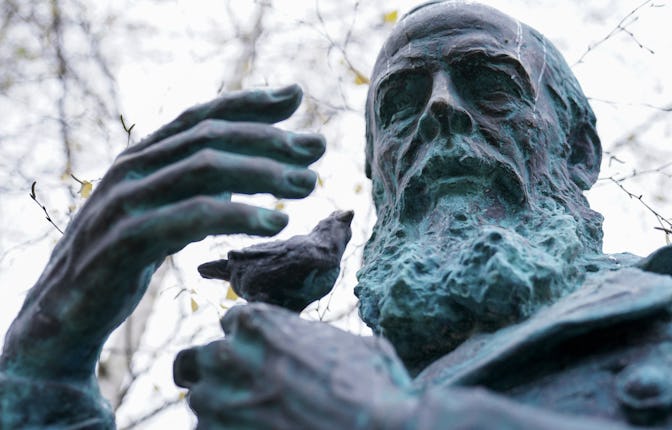A university tried to ban Dostoevsky to ... punish Putin?
Luckily, backlash seems to be helping to reverse the decision.

Book banning is unfortunately a tale as old as the written word. Information that gives way to the expansion of ideas is a gift, but for that same reason, it can be seen as dangerous. The American Booksellers for Free Expression noted as recently as 2016 growing lists of schools and libraries banning titles like Khaled Hosseini’s The Kite Runner, Toni Morrison’s Beloved, and Emily M. Danforth's The Miseducation of Cameron Post — titles that explore themes outside of straight, white narratives. We are now at a new frontier of book banning, though; it’s not only about ideas, but it’s about borders. A university in Milan just attempted to cancel a class on the classic Russian novelist Fyodor Dostoevsky due to the current hostile invasion of Ukraine by Russia.
Paolo Nori, an Italian writer who had been invited to do a four-part guest lecture on Dostoevsky at the University of Milano-Bicocca, vented his frustrations in an Instagram video after receiving an upsetting notification that informed him his course was “postponed.” The email read in part, “Dear Professor, the Vice Rector for Didactics has informed me of a decision taken with the rector to postpone the course on Dostoevsky. ... This is to avoid any controversy, especially internally, during a time of strong tensions.”
Nori lamented in his video, “I realize what is happening in Ukraine is horrible, and I feel like crying just thinking about it. But what is happening in Italy is ridiculous. ... Not only is being a living Russian wrong in Italy today, but also being a dead Russian, who was sentenced to death in 1849 because he read a forbidden thing. That an Italian university would ban a course on an author like Dostoevsky is unbelievable.” Dostoevsky’s work includes iconic existential titles like Notes From The Underground, Crime and Punishment, and The Brothers Karamazov. Dostoevsky was sentenced to death for reading banned books in 1849 for his activities with a “radical intellectual discussion group” called the Petrashevsky Circle. His execution was stayed at the last minute, but he served four years in a Siberian labor camp for his pursuit of intellectual freedom.
Nori’s video got quite a bit of traction with his almost 20,000 followers, and by Wednesday morning, “Dostoevsky” was trending on Twitter as backlash to the decision began to grow. Italy's former prime minister, Matteo Renzi, tweeted, “In this time we need to study more, not less: in the university we need teachers, not incapable bureaucrats.” Many noted that the erasure of Russian culture, especially its deep philosophical history, leaves only the present-day stain of Putin to remark upon. Some Twitter users quoted Dostoevsky himself, “You can be sincere and still be stupid.”
It seems as though the backlash has served to reinstate the course on Dostoevsky however. The university released a statement reading, “The University of Milano-Bicocca is a university open to dialogue and listening even in this very difficult period that sees us dismayed at the escalation of the conflict. ... The course of the writer Paolo Nori is part of the writing course aimed at students and citizens who aim to develop transversal skills through forms of writing. The university confirms that this course will take place in the established groups and will deal with the contents already agreed with the writer. ... In addition, the rector of the university will meet Paolo Nori next week for a moment of reflection.” With cultural boycotts on Russia encompassing the cancellation of tours in the country, the withdrawal of film releases, the refusal of foreign venues to host Russian acts, etc, we are walking a fine line on punishing a people for the actions of their senseless dictator. It will be important in the coming months to not erase Russian history and culture just for the actions of Putin — while still also standing with Ukraine.